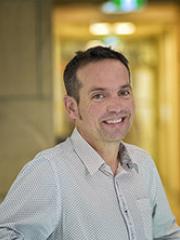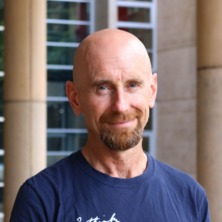Revisiting the Breeder’s Equation: Implications of our advancing understanding of trait genome-to-phenome relationships
Abstract
Plant breeders are expected to have a working knowledge of the Breeder’s Equation. It is also expected that the Breeder’s Equation will be used as a framework to help optimise the design of their breeding program. This was relatively straightforward when breeding was based predominantly on selection for trait phenotypes. Today, breeders either use, or aspire to use, genomic information in many ways to improve the effectiveness of their breeding programs. UQ Researchers will share their experiences on how this transition to use of genomic information has required them to think differently about the Breeder’s Equation. The prediction-based approaches to be discussed are grounded in an iterative empirical-modelling cycle that operates across two complementary domains: empirical-experimental and mathematical-modelling. The research themes are underpinned by: (1) Two decades of experience breeding maize hybrids for yield and yield stability in the US corn-belt and research partnerships with many colleagues, (2) Advances in hierarchical Bayesian modelling methods that leverage prior genetic and physiological knowledge for genomic prediction, (3) Advances in crop models that can enhance our ability to test “multiple workable solutions” to improve crop yield and yield stability through breeding and improved agronomy. Further, two strong motivations for investigating such prediction-based approaches are: (1) the need to increase the scale of breeding programs beyond what we can currently achieve by empirical approaches alone, and (2) using the environments we can sample today it is difficult to empirically test, at the required scale, for many dimensions of the projected future Target Population of Environments, given projected climate change scenarios for the rest of this century.
Host
Associate Professor Lee Hickey
 Associate Professor Lee Hickey is a plant breeder and crop geneticist within the Queensland Alliance for Agriculture and Food Innovation at The University of Queensland, Australia. He leads a diverse research team that specialises in plant breeding innovation to support development of more productive food crops like wheat, barley, mung bean and chickpea. This includes understanding the genetics of key traits like drought adaptation and disease resistance, plus the development of novel technologies to assist plant breeders. He has a strong interest in the integration of breeding technologies, such as the rapid generation advance technology 'speed breeding' with genomic selection and genome editing. His advice for speed breeding crops is sought internationally and the technology is now adopted by plant breeding programs worldwide, which is fast-tracking development of improved crop varieties for farmers. His research outcomes have featured in 80 refereed publications, including articles in high profile journals Nature Plants, Nature Protocols and Nature Biotechnology. Lee is a prolific science communicator and his research outcomes have appeared in mainstream media such as BBC World News, National Geographic, and the New York Times. He is passionate about training the next generation of plant breeders and currently mentors 13 PhD students, while 12 of his previous graduates now work for leading plant breeding companies and high-profile research institutes around the globe.
Associate Professor Lee Hickey is a plant breeder and crop geneticist within the Queensland Alliance for Agriculture and Food Innovation at The University of Queensland, Australia. He leads a diverse research team that specialises in plant breeding innovation to support development of more productive food crops like wheat, barley, mung bean and chickpea. This includes understanding the genetics of key traits like drought adaptation and disease resistance, plus the development of novel technologies to assist plant breeders. He has a strong interest in the integration of breeding technologies, such as the rapid generation advance technology 'speed breeding' with genomic selection and genome editing. His advice for speed breeding crops is sought internationally and the technology is now adopted by plant breeding programs worldwide, which is fast-tracking development of improved crop varieties for farmers. His research outcomes have featured in 80 refereed publications, including articles in high profile journals Nature Plants, Nature Protocols and Nature Biotechnology. Lee is a prolific science communicator and his research outcomes have appeared in mainstream media such as BBC World News, National Geographic, and the New York Times. He is passionate about training the next generation of plant breeders and currently mentors 13 PhD students, while 12 of his previous graduates now work for leading plant breeding companies and high-profile research institutes around the globe.
Speakers
 Professor Hayes has extensive research experience in genetic improvement of livestock, crop, pasture and aquaculture species, with a focus on integration of genomic information into breeding programs, including leading many large-scale projects which have successfully implemented genomic technologies in livestock and cropping industries. Author of more than 250 journal papers, including in Nature Genetics, Nature Reviews Genetics, and Science, contributing to statistical methodology for genomic, microbiome and metagenomic profile predictions, quantitative genetics including knowledge of genetic mechanisms underlying complex traits, and development of bioinformatics pipelines for sequence analysis. Thomson Reuters highly cited researcher in 2015, 2016, 2017 and 2018.
Professor Hayes has extensive research experience in genetic improvement of livestock, crop, pasture and aquaculture species, with a focus on integration of genomic information into breeding programs, including leading many large-scale projects which have successfully implemented genomic technologies in livestock and cropping industries. Author of more than 250 journal papers, including in Nature Genetics, Nature Reviews Genetics, and Science, contributing to statistical methodology for genomic, microbiome and metagenomic profile predictions, quantitative genetics including knowledge of genetic mechanisms underlying complex traits, and development of bioinformatics pipelines for sequence analysis. Thomson Reuters highly cited researcher in 2015, 2016, 2017 and 2018.
 Professor Mark Cooper is Chair of Prediction Based Crop Improvement at The University of Queensland, and a global leader in quantitative genetics and plant breeding. His work involves integrating genomic prediction and crop growth models into an ‘end to end’ framework for crop improvement.
Professor Mark Cooper is Chair of Prediction Based Crop Improvement at The University of Queensland, and a global leader in quantitative genetics and plant breeding. His work involves integrating genomic prediction and crop growth models into an ‘end to end’ framework for crop improvement.
Professor Cooper is the Deputy Director for the ARC Centre of Excellence for Plant Success in Nature and Agriculture (https://www.plantsuccess.org/). His main research interests combine theoretical, simulation and experimental investigations to formalise the use of prior knowledge of trait genome-to-phenome architecture to design breeding strategies that can deliver accelerated crop genetic improvement for quantitative traits. One example is the use of crop growth models in combination with genomic prediction to account for the impact of genotype-by-environment interactions.
Professor Cooper has pioneered the development of novel genetic modelling methodologies, based on gene networks, to study important properties of quantitative traits in biology, and demonstrated how this new genetic modelling framework can be successfully used in plant breeding to improve prediction of important traits under the influences of selection. Professor Cooper’s work at DuPont Pioneer on drought adaptation in one of the largest maize breeding programs in the world led to the AQUAmax hybrids that presently cover millions of hectares worldwide.
A quantitative geneticist by training, Professor Cooper spent 20 years working with industry in the United States and as CEO of his own consultancy firm Zenrun42, before returning to UQ to build upon the critical mass of predictive agricultural expertise in QAAFI and the wider university.
About AI Seminar Series
The AI Seminar Series will explore relevant topics in artificial intelligence and invite industry speakers and researchers to share their knowledge, experience and success - promoting transdisciplinary AI research and collaboration.
Venue
Hawken Building (50)
